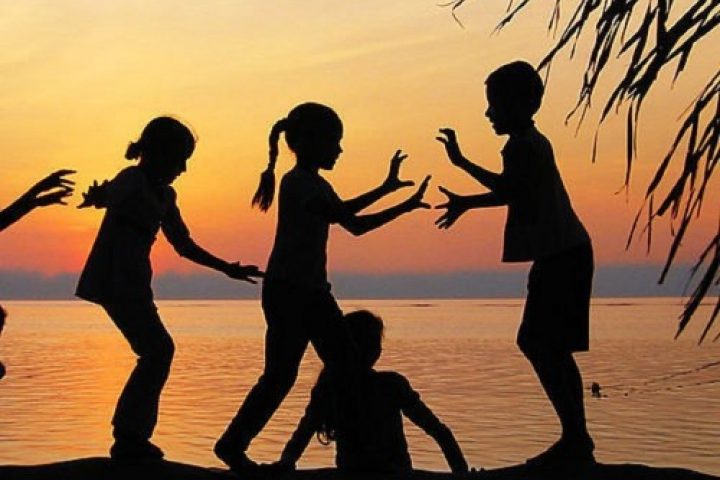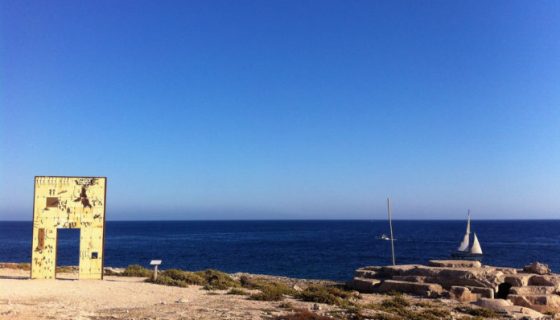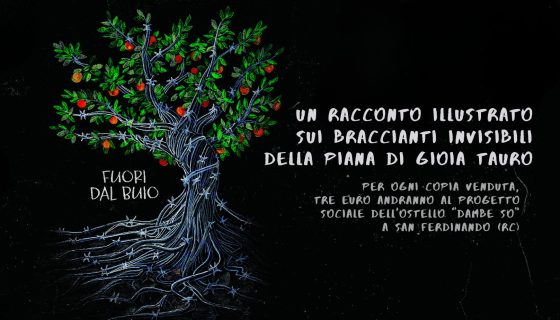- Mediterranean Hope - Federazione delle chiese evangeliche in Italia
- mh@fcei.it
The sons and daughters of Lampedusa
Marta Bernardini and Francesco Piobbichi – NEV
Lampedusa, Agrigento, 15 July 2015 – This is an island full of stories. Stories about the people who live on this rock because their families have been here for generations or because they decided to move here. Stories of those who stay here for a while and stories of those who arrive and leave again. Some stories are easier to tell and we are honoured to hear them directly from their keepers. Other stories remain suspended in the memory of few or among the waves of the sea.
We want to give a voice to those who have less and to those who are entitled to have their story told. But this is not always possible. You can guess from the looks, from the smiles of joy of those who arrive here safely, from the many “thank yous” we receive due to the mere fact of having set foot in the European Fortress. What we are able to do is give a voice to the other people on this island who, however, also give us pieces of stories of those who have been denied the possibility. Lillo Maggiore has sincere, deep and bright eyes like the most beautiful bays of Lampedusa. He is a passionate and generous Lampedusian, full of energy and the desire to share what he has learned from this rock. He has a large family, a wife, who is just as energetic, and many sons and daughters. Not only those they call “natural” but also those who have enriched their lives. Since last year, they have in foster care, as recounts Lillo “a young unaccompanied foreign boy who arrived on our coasts. The foster care procedure was very difficult because it did not go through the institutions, but with the help of “Ai Bi, Associazione amici dei bambini” (International humanitarian Organization). Lillo tells us that their home has always been “the home of hospitality” since the Arab Spring of 2011 when they took in their first Tunisian boy, who now lives in Nice. Then there was the tragedy of 3 October 2013 and two boys called Tami and Alex came to stay with them for four months. Today says Lillo, “they are like our children living far away, because one lives in Norway and the other in Holland. They make us happy, we are happy for them because we know they’re doing well. Norway and Holland both welcomed them, they gave them a grant, they go to school and have a place to live.” As he shows me photos of the two boys. Lillo continues his story, “the first memory I have of Tami and Alex is not a nice one. Alex was in Via Roma sitting on a step with tears in his eyes. I didn’t know he had survived a shipwreck. I went over to him and asked him how he was and he told me his story. His story moved me and I hugged him. I brought him home and the day after he brought Tami with him. From the time they entered this house they have never left our family, which has now become theirs.” Lillo’s emotions shine through as the talks about the boys, of how Tami calls during the day, while Alex has the “bad habit” of calling at night, waking him up and asking to speak with “mummy, mummy”. They laugh as they recount these episodes, like when, says his eldest daughter “Tami contacted me on Facebook one night, we still didn’t know each other and he introduced himself, “Hello. I am Tami Maggiore, do you know where my dad is? Lillo tenderly tells of how one evening he heard Tami talking with his sister who is married to an Italian, and telling her that he had lost a father but had found another one in Lampedusa. “Memories that touch you and never go away,” says Lillo. Young men who are people, who have a name and a story. Lillo has been trying to put his passion to good use. A year ago he became a Red Cross volunteer, assigned to the area of human rights and international rights. He is present at the pier together with others when the young men and women arrive and it brings up many memories but also many frustrations. He tells us, “I feel bad not being able to meet the young men and women who arrive here and who are then sent to the Centre of Reception. I see them arrive in poor condition, barefoot and wet, and I cannot greet or talk to them, to teach them a few Italian words for when they go away. I want to be able to spend some time with them, to have fun and play football with them, with all those boys we call migrants, who are refugees of our wars. I don’t want them to feel like prisoners, but free to communicate with the community of Lampedusa”. For a few years now, the reception system that we know has made it increasingly difficult to meet migrants who arrive, forcing the population into a closed and separate place. Lillo, like many other citizens and like the young migrants themselves, suffers from these insurmountable walls because, as he says, “having a chance to build a relationship with these young men and women has made us grow. It has made us understand the meaning of poverty and lack of freedom. It has made us much more aware and mature. It has made us realise that if you can lend a hand and then the other, you must do it. We think that we are always doing too little.” He continues, “meeting these migrants has made us understand what it means to run away from a war-torn country, a dictatorship, and reach a democratic country. It’s not right to die from the cold, at sea, because you are travelling on a dilapidated boat. It should not happen and I don’t understand why human beings are prevented from moving.” These are not extraordinary people, they are not heroes, they are people like any other. People who know how to open their homes and hearts, people who are able to share what they have. They are not “do-gooders” but people who allow themselves to be transformed by the profound encounter with humanity on the move. Every contradiction emerges powerfully from these stories. We are so good at building walls and boundaries, at putting deserts, seas, prisons and violence between “us” and “them”. Fortunately, many people still persevere in wanting to build corridors, bridges, crossings, and spaces of familiarity, affection, humanity and dignity.





